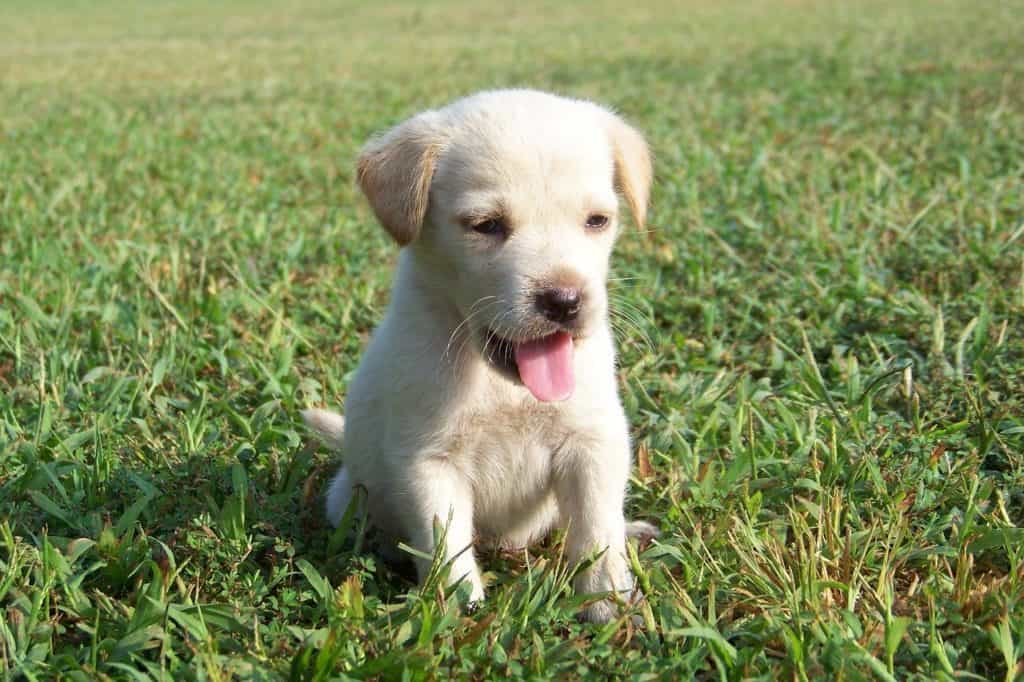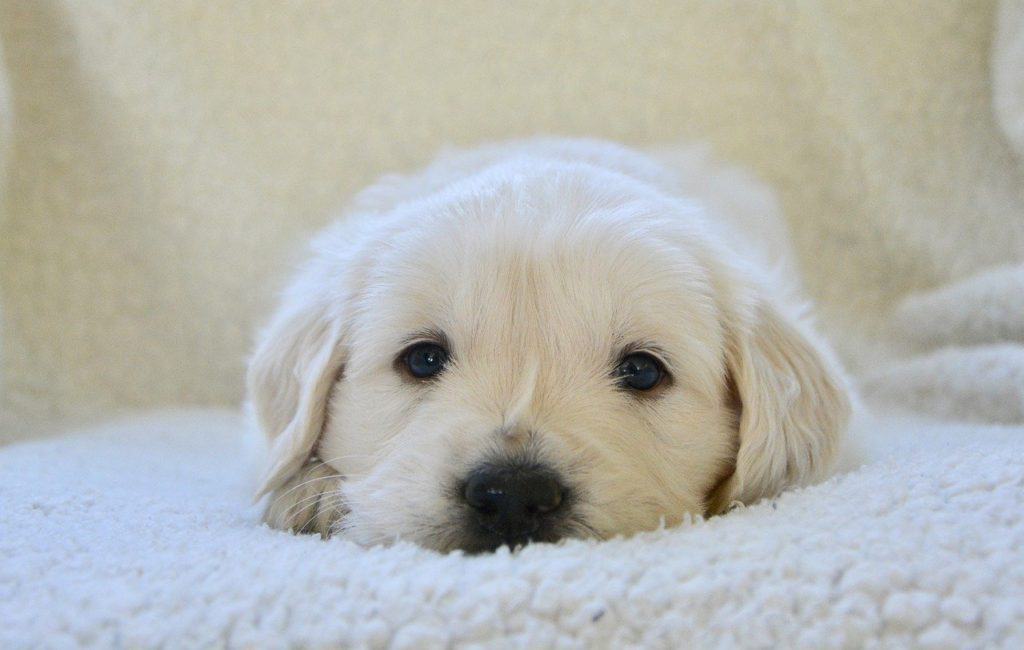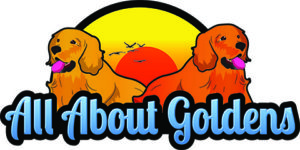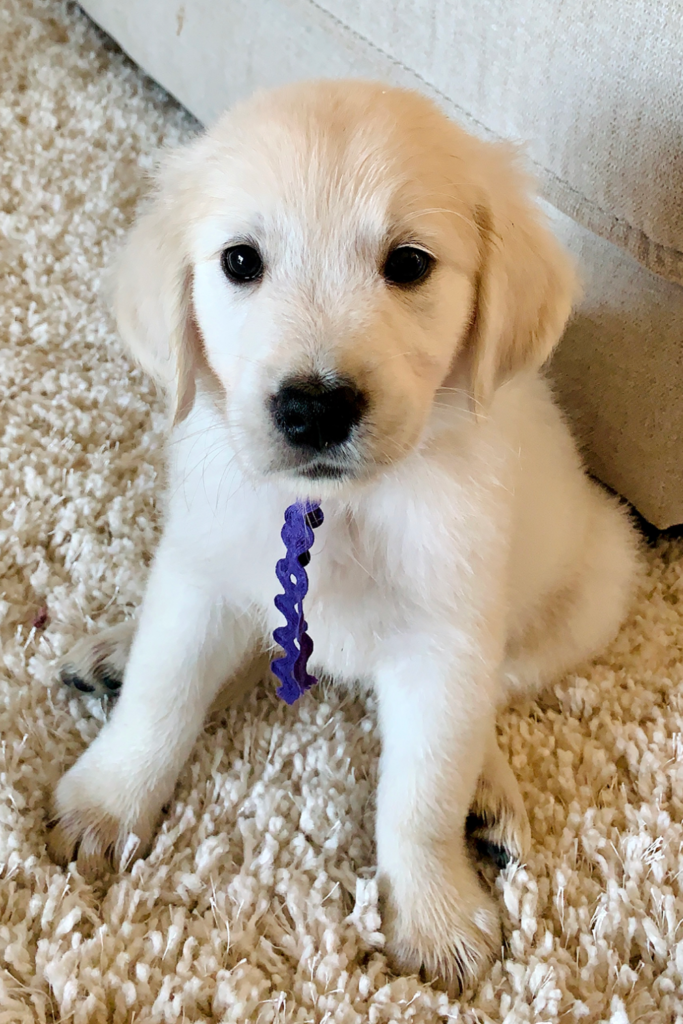
Have you been thinking about adding a golden retriever to the family? Getting a puppy comes with its own set of responsibilities, including the dreaded potty training task. Wondering how difficult potty training will be?
Let’s answer the question of are golden retrievers easy to potty train?
Golden Retrievers are easy to potty train. They are very intelligent and trainable dogs. Start potty training your golden retriever early and be consistent with your new puppy. Remember to praise your puppy and be persistent.
Goldens are smart, active dogs, and they are also eager to please their people. They have the focus to potty train relatively fast. Let us find out what steps you need to take to train your golden properly.
Table of Contents
How long do golden retrievers take to potty train?
Golden Retrievers potty train relatively fast. They understand the concept of going out or going to the door to let you know. Their bladders may not work as well as their brains, and young puppies may have accidents by the door. This signals they are learning and understanding the concept of going out to potty.
The more times you take your puppy out to eliminate outdoors at the location you want the better chance you have of painting the picture for your pup. Golden Retrievers love to please their humans, and we can show them how to do that by taking them out frequently and rewarding them when they potty outside.
A golden retriever puppy will start to potty train at 10 – 12 weeks. They will understand the concept of going to the door. Most dogs are not considered house trained or potty trained until six months.
How long can golden retrievers hold their pee?
It’s important to remember that even if your puppy understands they are not supposed to potty in the house. At a young age, they can only hold their pee for so long. Your puppy may go the door to signal they need to go out. If we miss their single and don’t let them out quickly enough, you may find a puddle right in front of the door.
To reduce the number of accidents in the house, remember to take your puppy out frequently. We suggest for an 8-week old puppy a trip outside everyone 1-2 hours. Don’t worry; this is short-lived as your puppy grows they will be able to hold their pee for more extended periods. A puppy that is four months should be able to hold their pee for 4 hours or a little longer. By eight months, your pup should be able to get by on 3 to 4 trips out a day.
It’s best to plan to take your puppy outside when you think they may have to go. The more often you take your puppy out, the better understanding he will have of what you are asking of them.
How do you potty train a golden retriever puppy?

Let’s go over a couple of methods commonly used to potty train a puppy.
- Crate Training
- Paper Training
- Supervised Training
Crate Training your golden
Dog owners find that crate training works well for most puppies. Dogs, in general, like small, enclosed spaces and consider them safe spaces. Don’t feel like you are “jailing” your pup your dog prefers the small space.
Crate training is a good option for you if you will not be home during the day. A great benefit of crate training during the potty training period is that dogs do not like to go to the bathroom where they sleep. It also helps them to learn to control their bladder. The idea is to practice when your pup in short sessions and bring the puppy out from the crate directly to the potty spot.
One key factor in successfully using the crate to potty train is picking the correct size crate. It may mean you have to buy more than one crate, but it is crucial to have the right size crate for your puppy. If you put your golden retriever puppy in a large crate, thinking you are giving more space. Your puppy will end up using the potty on one end and sleeping on the other
We think crate training is a good option. If you can get your puppy to agree and stick with crate training your puppy will be potty trained in no time. Of course, if you are absolutely against crate training there are other options that work just as well.
Paper Training
Training your puppy to go on a pee pad is another option. This option requires you to confine the puppy to a room or playpen where you can layer the floor with paper pee pads.
This method is also useful if you are not home during the day to take your puppy out every couple of hours. At first, your puppy will use anywhere on the paper, but as time goes on, he will pick a spot. When this happens, you can start eliminating some of the papered areas. It will also give you the option to move the paper anywhere, and the puppy will understand to “go” on the peed pads. This training does take some time. If your puppy has accidents off the pee pads, you may need to leave the whole area papered longer or return to putting paper down in the entire room
Supervised Training to “go” outside
This is the preferred method. In the long run, this will save you time and work and possibly your floor! This method works well with crate training, but I found when using this method with a pee pad, it confused the puppy. So we choose to use the crate when we were are not home and supervised training when we were home.
You will need to watch your puppy for sniffing or circling and going to the door while inside. This is a good indicator that your puppy needs to go out.
Let your puppy either follow you or put them on a leash and lead them to the designated potty area. Allowing your puppy to walk will help him independently sniff out his potty area.
When you take your puppy out, use the command “go pee” or “hurry up.” Your puppy will learn to associate this command with going to the potty. This will help you teach them why they are going out, and that this time out is not a play session.
After your puppy goes potty in their designated area, be sure to praise him and reward him profusely. Golden Retrievers love to be praised. This will help it click with your puppy to what you are asking of them.
The key to having a successful potty training experience is having patience and being consistent. It’s important to under that your puppy with have an accident. Hopefully, this phase goes quickly.
Golden retriever puppy schedule
- 7:00 A.M Remove puppy from the crate and immediately take him outside to the potty area.
- 7:15 A.M. Feed your puppy and offer him some water
- 7:30 A.M. Return your puppy to the potty area. Use your commands of “go pee” or “hurry up” remember to give your puppy some praise. Tank pup for a little exercise by walking or playing with him.
- 8: A.M. Put puppy in a crate or the confined area designated for your puppy.
- Remember if you only leave young puppies in the crate for periods of no longer than 4 hours.
- At Home:
- 10:00 A.M. Get puppy out of his crate or sleeping area and take him outside to the potty area
- 10:15 A.M. Walk and Play with the puppy
- 10:30 A.M. Puppy playtime in a safe area
- Noon: Feed puppy second meal
- 12:15 P.M Potty time
- 12:30 P.M. Have a play session and something stimulating mentally for a puppy also does an obedience session
- 1:00 P.M. Put your pup back in the crate for a nap
- 3:00 P.M. Potty time
- 4:00 P.M. Socialize puppy
- 5:00 P.M. Feed puppy last meal
- 5:15 Potty time
- 6:30 P.M. Thank puppy outside for playtime
- 8:00 P.M. Last call for water then potty
- 10:00 P.M. Potty time then crate of his puppy safe place for the night
Let’s go over some tips to help when your puppy has an accident.
- Too much freedom to quickly will lead to puppy having an accident
- Having a crate that is too big
- Change in diet
- Even a potty trained dog can have an accident
- Recognizing Territorial Marking
- Bladder Infection
- Separation Anxiety
While you can expect some accidents with your golden retriever puppy. Most puppies learn very quickly just remember to have patience and be consistent. Follow your plan for potty training and give your pup lots of praise when they do something you want them too.

